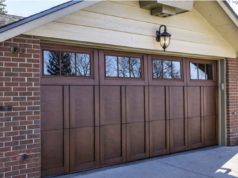Governor Quinn Expands Innovative Program to Help Working Families, Rebuild Communities
Illinois Building Blocks Program Provides $10,000 in Assistance to Buyers of Vacant Homes in 15 Hard-Hit Communities
CHICAGO – March 21, 2013 – (RealEstateRama) — As part of the “Year of Homeownership” in Illinois, Governor Pat Quinn today announced the expansion of Illinois Building Blocks, an innovative program that creates affordable homeownership opportunities for buyers of vacant homes and helps revitalize communities. Homebuyers in 10 additional municipalities may qualify for $10,000 in down payment and closing cost assistance as part of the Illinois Building Blocks program. The program is now available in 15 Illinois communities. Today’s announcement is part of the governor’s commitment to strengthen communities across Illinois.
“We are helping more working families in Illinois achieve the dream of owning a home,” Governor Quinn said. “The Illinois Building Blocks program is a groundbreaking and transformative program that stabilizes neighborhoods and grows the economy.”
Belleville, Blue Island, Champaign, Cicero, Crest Hill, Joliet, Lockport, Lynwood, Melrose Park and Peoria now join the existing Illinois Building Blocks communities of Berwyn, Chicago Heights, Maywood, Park Forest and South Holland. Administered by the Illinois Housing Development Authority (IHDA), this program uses a comprehensive strategy to continue addressing the foreclosure crisis in communities in need. The program encourages the reuse of vacant single-family properties and enables more working families to access currently low housing prices by making homeownership safe and affordable.
Illinois Building Blocks works to keep homeowners in their home by raising awareness of assistance available under Governor Quinn’s Illinois Foreclosure Prevention Network (IFPN), including mortgage assistance under the Illinois Hardest Hit program. Illinois Building Blocks also revitalizes communities by turning vacant properties into valuable homebuyer opportunities for low-to moderate-income families and is open to all qualified buyers purchasing homes in the Building Blocks communities. Buyers may qualify for a 30-year fixed-rate mortgage (currently 4 percent) and $10,000 in down payment and closing cost assistance.
“Governor Quinn’s Illinois Building Blocks program is ending the cycle of blight by rehabilitating not only homes but whole communities – one house, one block, one neighborhood at a time,” IHDA Executive Director Mary R. Kenney said.
Other state-coordinated housing programs are focused on community stabilization. Since Governor Quinn launched the program last year, Illinois Building Blocks has proved to be a successful model because it enables IHDA and its partners to build on existing efforts.
In the program’s first year, more than 580 housing units have been assisted in the original five Building Blocks communities including:
112 buyers have applied for loans under the Building Blocks program, reserving $13 million in financing
223 homeowners have been assisted under the Illinois Hardest Hit program, with a commitment of $5.2 million
126 vacant units have been rehabilitated and put back to productive use through the Neighborhood Stabilization Program (NSP) and other programs
Today’s announcement is the latest part of Governor Quinn’s proclamation of 2013 as the “Year of Homeownership” in Illinois. The governor recently launched a new affordable mortgage package called SmartMove Trio, and will host the State of Illinois Homebuyer Expo.
The Expo will take place Saturday, March 23 at the Illinois Institute of Technology in Chicago. Lenders and housing counselors will be at the Expo to advise potential homebuyers of the best loan for them. Registration at IDHA.org is required.
About the Illinois Housing Development Authority
IHDA is a self-supporting state agency that finances the creation and the preservation of affordable housing across Illinois. Since its creation in 1967, IHDA has allocated more than $11.6 billion and financed approximately 225,000 affordable units across the state.






